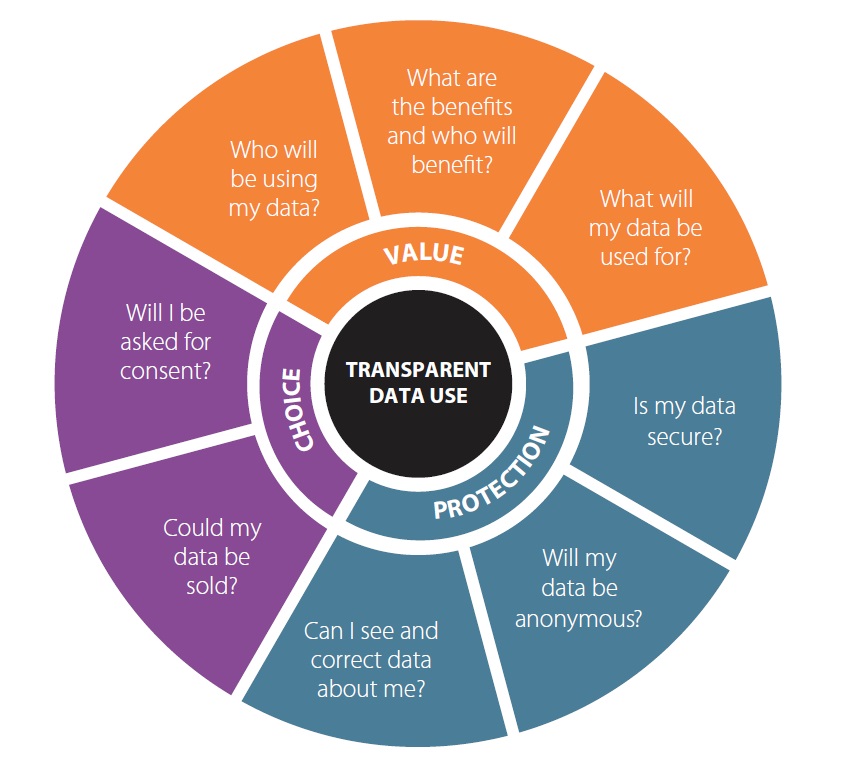Informed choice
Tuesday, 5 June 2018
Return to eHealthNews.nz home page 
Digital Vision: A regular column by Ann-Marie Cavanagh
If we apply the principle of informed choice to how New Zealand embraces new technology in the heath sector, what information do we need to make the right decisions regarding digital advances in healthcare?
Until recent times, choices in healthcare were usually made by medical professionals on behalf of patients: “the doctor knows best”. Today, individuals have become more aware of treatment options, and more people are seeking to take control of their own health and wellness path. This may include whether to be screened for diseases, or which treatment option to pursue following a diagnosis.
What is informed choice in healthcare?
On an individual patient level, informed consent or informed choice is defined by the New Zealand Medical Council as “an interactive process between a doctor and patient where the patient gains an understanding of his or her condition and receives an explanation of the options available, including an assessment of the expected risks, side effects, benefits and costs of each option, and thus is able to make an informed choice”.
Can this principle be applied on a national level to how New Zealand embraces new technology in healthcare? Specifically, what information do we need to make the right decisions regarding digital advances in healthcare so that all New Zealanders live well, stay well and get well?
What information do we have and how is it currently used?
Importantly, the information is there already. The New Zealand Government holds a plethora of data on New Zealanders’ health, in the form of data marts. These include the New Zealand Cancer Registry, public hospital discharge data, the National Immunisation Register and more.
National Collections and Reporting (NCR), a key component of the Technology and Digital Services team in the Ministry of Health, receives requests for this data from many sources, including government, healthcare organisations and individual researchers. A key government customer is Statistics New Zealand, which holds and links government data for research and analytical purposes in its Integrated Data Infrastructure.
While data is already linked for specific projects, there is great potential for health data to be utilised in other, powerful new digital formats to improve New Zealand’s overall health.
New Zealand’s digital health strategy includes a focus on data and information
New Zealanders have the right to access this individual and collective data, but the process must be managed to ensure the right balance is struck between protecting privacy and unleashing the value of data to improve health outcomes. Furthermore, in order to deliver it in meaningful and easily accessible ways, the Government needs to understand how their customers (including the public) may want to use the data. What is the strategy for this?
The overall strategy for mobilising New Zealand’s health data to make it more usable involves three key themes:
- Data sharing – making information more available and actionable and thus aiding business decisions for the Ministry of Health and the health sector in general.
- Advanced analytics – information that is beyond just data but enables predictions and analysis of trends.
- Data visualisation – presenting data in meaningful and easily understood formats.
Open data that respects privacy
Open data is the ultimate step in making New Zealand’s data accessible to all. Open data is data that anyone can use and share. It has an open licence, is openly accessible and is both human-readable and machine-readable. Open data drives innovation, helps build new business and encourages more strategic investment – creating new jobs, new industries and stronger economies.
However, there are important data protection requirements that must be adhered to. Protection can be divided into three key areas: data security, data privacy and data accuracy. The strategy for using open data in the future must be balanced accordingly. New Zealand’s unique cultural mix also means that we must engage appropriately with Māori and other groups to ensure all New Zealanders’ data is properly represented and utilised.
The future of open data
Imagine a future where you can access all your own data via a single phone app or wearable, and help understand your own health status by comparing your data instantly with national averages. Artificial intelligence and machine-learning modalities can take data and incorporate it into electronic health records or take scans and make quick and accurate diagnoses. The opportunities are endless.
These examples may not appeal to everyone, but the point is that information is powerful, and making our information more accessible gives us the tools to make informed choices for the future direction of digital healthcare in New Zealand. Due diligence in data protection, combined with a deep understanding of our societal needs, can ensure we have an innovative, data-driven, digital health future for the benefit of us all.
Read more about the NZ Vision for Health Technology and the theme of informed choice.
Return to eHealthNews.nz home page
|